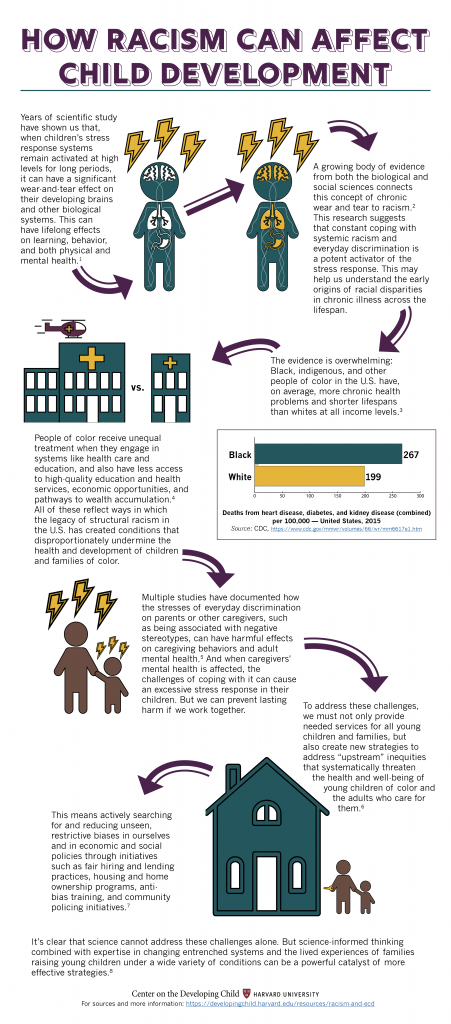
An educator, mentor and mother shares her reflection, discovery and surprise about her own bias.
I think of myself as a good person. I am reflective, kind, and generous. I feel I am well-informed, progressive, and tolerant. I have spent my life mentoring other people, teaching others new skills and trying to help them as much as I could. I grew up traveling, living in different cultures. I majored in Latinx Studies and researched multicultural education. I have taught my child to be her best, most compassionate self.
As a Caucasian woman, I thought that these experiences and attributes meant I was incapable of developing prejudices. I have come to see that I was naïvely mistaken. When I first learned about implicit bias, it challenged my identity to its core—how could I be the open-minded person I think I am and also have misguided, prejudiced attitudes? I tried to sit with these feelings. They did not sit well. I became curious.
I started reading books by Black authors about their experiences with racism. I found myself crying — not because of any terrible action I had taken, but because of my great ignorance of this particular pain. And because of the recognition that my ignorance is a privilege. As a teacher, I had known hundreds of African American students, yet I knew so little about their lives beyond the classroom.
I listened closely when I heard a queer family member describe the extensive logistical, legal, and financial work involved in marrying a spouse of the same sex and getting that marriage recognized by various governmental institutions. When I married my partner of the opposite sex, these concerns were far from my mind.
In a previous job, I worked with refugee and immigrant families from around the world. I loved learning about their cultures and customs and sharing mine with them. As I offered tools to support their English language development, the caregivers shared how infrequently resources were provided in their preferred languages. They revealed how they wished to be more involved in their children’s education but did not understand most of the English-language materials sent home from school.
I am proud to be bilingual. I learned Spanish in school and through study abroad programs. However, I do not know what it is to be linguistically separated from what I need to know in order to advocate for my family.
In this journey, I am finding a humility I did not know I needed. Acknowledging my biases means admitting my flawed humanity. It does not negate all of my best intentions, the virtuous parts of me, or the lessons I have learned in my life. If anything, it strengthens all of those. If I am willing to admit that I have implicit biases, then I do not have to waste energy denying their existence. Instead, I can focus my efforts on examining them, dismantling them, and pursuing broader perspectives.
 While I do that intellectual and emotional work, I can take other practical steps to grow. I can use my strengths to reduce my biases. For example, I am a social person. Through new and old relationships, I listen and learn. I engage others in conversations about discrimination, gaining insight from their thoughts.
While I do that intellectual and emotional work, I can take other practical steps to grow. I can use my strengths to reduce my biases. For example, I am a social person. Through new and old relationships, I listen and learn. I engage others in conversations about discrimination, gaining insight from their thoughts.
I read with my child and have thoughtful conversations about the world. I look for books with characters who do and do not look like her, who face similar and different challenges. I enjoy social media, so I seek out accounts that talk about meaningful change in thoughts and actions. I like to laugh, so I consider what kinds of jokes and platforms I accept as funny.
My conclusion is that my work continues. I am still myself, but I am growing into a better, more honest version of myself. I have much more to learn. When it feels intimidating, I remember that this work is not for me to do alone. I want to connect with your efforts, your journey, your needs. I want to build something greater than any of us — something created to serve all of us. Let’s build it together.
________________________________
Sources
How Racism Can Affect Child Development. (n.d.). Center on the Developing Child at Harvard University. Retrieved November 24, 2020, from https://developingchild.harvard.edu/resources/racism-and-ecd/
Implicit Racial Bias 101: Exploring Implicit Bias in Child Protection. (n.d.). Retrieved October 4, 2019, from https://kirwaninstitute.osu.edu/implicit-bias-101
Antiracist-Frame-12.10.19.pdf. (n.d.). Retrieved November 24, 2020, from https://cssp.org/wp-content/uploads/2019/09/Antiracist-Frame-12.10.19.pdf
This article is from Family Support News Brief’s December 2020 edition. The Family Support News Brief covers topics like Parents as Teachers model fidelity and training, strengthening families protective factors, prevention of child abuse, childhood injury prevention, and more.
